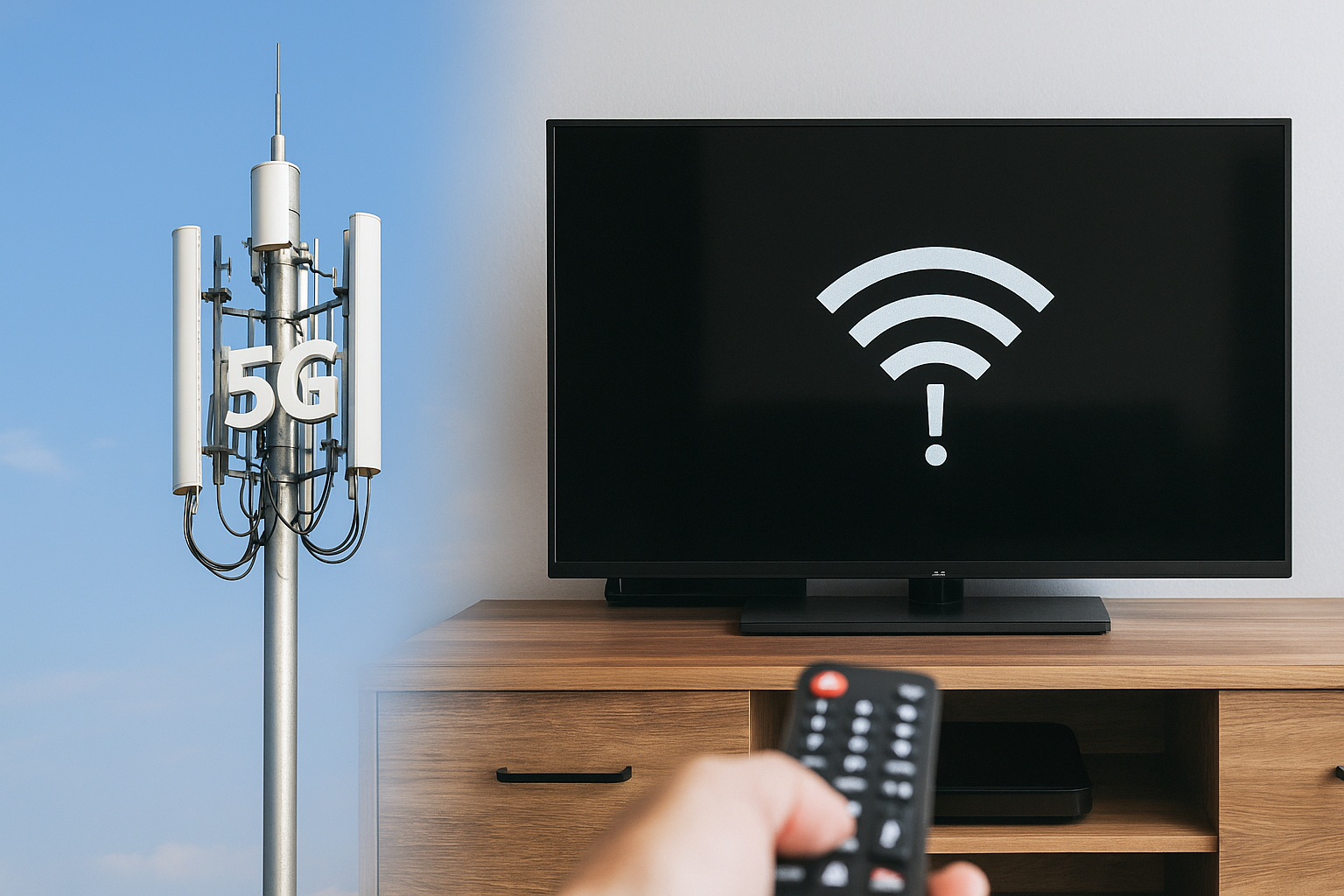
🚨 5G is Crashing Smart TVs?
It started quietly, like a ghost in the machine.
Smart TVs from top brands—Samsung, LG, Hisense, and Roku—began acting strangely. Freezing. Rebooting. Losing Wi-Fi. What seemed like isolated glitches are now being tied to a common thread: 5G signal interference.
On a Samsung community forum, users reported that their TVs reboot cold out of standby mode and require manual Wi-Fi reconnection each time1. Over on Roku’s support forum, complaints described TV crashes, lags, and connectivity issues that only started after switching to a new 5 GHz Wi‑Fi router or upgrading to a 5G-enabled neighborhood2.
At first glance, this sounds like tech paranoia.
But RF engineers and telecom watchdogs are taking it seriously.
According to a Com-Power Corporation study, mmWave 5G frequencies—typically in the 24–40 GHz range—emit highly directional, high-power bursts of energy that can introduce electromagnetic interference (EMI) with nearby low-shielded electronics3. These bursts are designed for outdoor urban deployments but can seep indoors through thin walls or windows, unintentionally interfering with sensitive components like Wi-Fi/Bluetooth modules inside smart TVs.
The issue doesn’t stop with high-frequency mmWave. Even sub-6 GHz 5G bands—like the newly allocated 617–705 MHz spectrum—have been flagged as capable of drowning out over-the-air (OTA) TV signals, particularly those relying on digital tuners or older antennas4. And since most modern TVs combine streaming with OTA decoding, it creates a perfect storm of signal collision.
This might explain why older smart TVs or budget models—lacking robust RF shielding—are the most vulnerable.
Even more chilling? Some TVs crash only when idle—suggesting background services are especially vulnerable to signal spikes, such as periodic 5G bursts from nearby towers or smart meters pinging the home network.
Repair technicians have taken notice too.
TechFix USA, a California-based electronics repair shop, reported that over 30% of recent TV service calls involved Wi-Fi disconnections or sudden power resets. Their in-field diagnostics blamed nearby new 5G home towers for signal surges strong enough to overwhelm internal antennae and even cause system reboots.
There’s no official fix yet. TV manufacturers haven’t issued software updates for this class of interference. But some users found temporary relief by switching back to 2.4 GHz Wi-Fi or installing Faraday mesh wraps behind the TV.
📚 Sources
Smart TVs are meant to connect us. But in the race to go wireless and fast, we may have introduced a new breed of ghost in the shell—powered not by code, but by invisible waves in the air.
Footnotes
-
https://us.community.samsung.com/t5/HD-and-UHD-TVs/TV-keeps-restarting-on-its-own/td-p/1800104 ↩
-
https://community.roku.com/t5/Wi-Fi-connectivity/Roku-TCL-TV-reboots-when-using-5Ghz-WiFi/td-p/850765 ↩
-
https://www.rcrwireless.com/20230313/test-and-measurement/mmwave-challenges-electromagnetic-interference ↩
📬 Stay Updated!
Subscribe to receive the latest embedded & RTOS blog updates in your inbox.